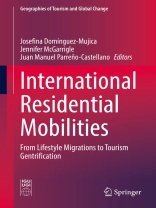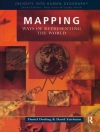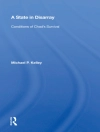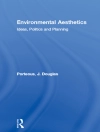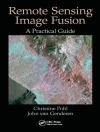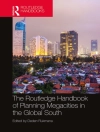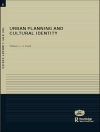This book assesses the drivers and impacts of new international residential mobilities by considering a range of mobilities in different countries across the globe from investment, amenity and retirement mobilities to those of the new global middle class and the transnational elites. It examines the intersection of these mobilities with the increase in the volume of global tourism, the advent of the sharing economy and peer-to-peer platforms, and the effects of transnational property investment. The consequent transformations are considered in urban environments where tourism pressure coexists with gentrification, increasing house prices and processes of social and ethnic segregation. By offering a broad perspective based on different case studies, the book portrays the contradictory consequences of international residential mobilities both favouring local opportunities for development and disrupting housing markets through the disassociation from local demand. As a result this bookis a great resource for academics and students in tourism, urban and migration studies as well as policy-makers and practitioners involved in urban planning, social affairs and tourism management.
Cuprins
Part I: Theoretical Approaches.- Chapter 1. A Global Sociology on Lifestyle Migrations.- Chapter 2. Overseas Investment and the Real Estate Market: Global and Local Frictions and the Great Acceleration.- Part II: Global Processes of Multi-residence and Local Impacts.- Chapter 3. The Sea as a Lifestyle: (Im)mobilities, Liminality, and Life Course Transitions Among Permanently Settled Sailors in the Azores (Portugal).- Chapter 4. The Reconfiguration of International Residential Mobility Flows in Post-crisis Spain: The Case of Costa Blanca-Alicante.- Chapter 5. Global Mobility and Migration in the Cities of the Patagonian Andes: Emerging Diversity.- Chapter 6. International Mobility: An Approach to the Imaginaries of Residential Tourism from the Northern and South-Eastern Borders of Mexico.- Chapter 7. The Locational Choice of Urban Lifestyle Migrants in Lisbon: Beyond Tourism Imaginaries.- Part III: Transnationalism, Return and Circular Migrations.- Chapter 8. Residential Mobility of Hungarian Nationals and Foreign Citizens: The Case Study of Budapest.- Chapter 9. Patterns of Transnational Urban Drift to Latvia.- Chapter 10. International Mobility and Its Spatial Impacts in the Rome Metropolitan Area: An Analysis of the Last Two Decades.- Chapter 11. Diasporic Links and Tourism Development in Cape Verde. The Case of Praia.- Chapter 12. The Contribution of International Residential Mobility to Tourism Development: Cienfuegos City, Cuba.- Part IV: Migrations and Tourism in Urban Spaces: Processes of Gentrification.- Chapter 13. Geographies of Gentrification in Barcelona. Tourism as a Driver of Social Change.- Chapter 14. Tourism Development and Housing After Iceland’s 2008 Crash.- Chapter 15. Gentrification, Social Activism and Contestations in Cape Town (South Africa).- Chapter 16. Local Economies and Socio-spatial Segregations in the Aegean Islands: Touristic Development Versus Refugee Arrivals and Ghettoization? The Case of Lesvos Island.- Chapter 17. Tourism and Lifestyle-Led Mobilities.
Despre autor
Josefina Domínguez-Mujica is Ph D. Professor of Human Geography at the University of Las Palmas de Gran Canaria, Spain. She has developed her research career in the subject of Population Geography and specifically in International Migration Processes and Tourism. She has conducted several research projects and has published many articles and book chapters in these areas. As editor, her most recent contributions are the book entitled ‘Global Change and Human Mobility’ (Springer, 2016) and ‘European Mobility in Times of Crisis: the New Context of European South-North Migration’ in collaboration with Birgit Glorius (Transcript Verlag, 2017). She is the Chairperson of the International Geographical Union Commission on “Globility” (Global Change and Human Mobility) and she leads the Research Group “Atlantic Societies and Spaces’ at the University of Las Palmas de Gran Canaria.
Jennifer Mc Garrigle holds a Ph D in Urban Studies from the University of Glasgow, UK. She is Assistant Professor of Human Geography at the Institute of Geography and Spatial Planning (IGOT) and a researcher in the Centre for Geographical Studies (CEG) at the Universidade de Lisboa, Portugal. Her main research interests lie at the intersection of human geography, urban studies and migration studies. She is author of ‘Understanding Processes of Ethnic Concentration and Dispersal’ (University of Amsterdam Press, 2010), has published in journals such as the Journal of Ethnic and Migration Studies, Housing Studies and Finisterra and Tourism Geographies. She has worked on numerous competitively financed international projects in the area of international migration, including a recent project on smart tourism, and is a member of IMISCOE.
Juan Manuel Parreño-Castellano is Ph D. Full Professor of Human Geography and Director of the Department of Geography at the University of Las Palmas de Gran Canaria, Spain. He has developed his research career in the scope of Urban and Tourism Geography, in particular in International Migrations, Housing Market and Development of Tourism Destinations. As result, he has published a large number of books, chapters of books and research papers and has participated in several research projects. Among his published contributions are “Migrating abroad to get ahead: the emigration of young Spanish adults during the financial crisis (2008–2013)”; “Working and retiring in sunny Spain: Lifestyle migration further explored” (Hungarian Geographical Bulletin, 2016); “Migration at a time of global economic crisis: the situation in Spain” (International Migration, 2014) and “Tourism and human mobility in Spanish Archipelagos” (Annals of Tourism Research, 2011).
